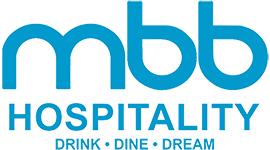
Managing a small restaurant can feel like a big job because of all the moving parts that you have to think about. Between maintaining customer satisfaction during high volume times, keeping labor numbers from going passed the maximum, and dealing with issues that come with food preparation and storage, there is a lot to handle.
As a member of restaurant management, you want to keep both your employees and your customers happy to ensure the best working environment possible. This requires interpersonal skills that don’t always come easy to people. However, you can learn these skills and improve your management style with 5 techniques that can make your restaurant run much more smoothly.
1. Stay Consistent
When it comes to rules in the restaurant and managing multiple issues at hectic times, your employees should know that you will be consistent. Ensuring that rules are followed, dress codes are enforced, and inappropriate behavior will not be tolerated even during the dinner rush will make things much easier to handle from day-to-day.
Employees can sometimes get overwhelmed, especially newer ones, but when the rules and regulations change during fast-paced times they might get confused when you allow them to bend a rule or two for the sake of time. This may save time for smaller issues, but this can lead to more problems in the long run.
The best thing you can do is to stay consistent so your employees know exactly what the rules and policies are, and they will be able to handle smaller issues with customers on their own. This can save you from dealing with multiple problems at once during peak times and can save you from having employees who get used to bending the rules and don’t follow them consistently.
2. Learn About Every Job in the Restaurant
From the bussers to the cooks, you should know what it takes to do each and every job in your restaurant. Knowing what a server needs during a time when their section is filling up quickly will allow you to anticipate the issues and get ahead of them. Helping out by giving them support through a less busy server, or even talking to the customers yourself will go a long way with your staff.
Also, learning about each job will allow you to better prepare for rushes. Knowing that there will need to be a certain number of people at specific times to do each job will keep you from being understaffed and having to pitch in when you could be getting other things done.
Learning about other people’s positions also shows that you care about their comfort and abilities and can earn some respect from employees, and you can even learn some tips and tricks from them.
3. Focus on Customer Satisfaction
With the number of people eating out for more meals a week than ever before, customer satisfaction will go a long way to boosting your business. Becoming a regular spot for locals to dine can help your profits margins even at times when business is slow. Plus, with more people eating out more often, there is a trend of going to a restaurant for the experience, and not just for the food.
This allows your restaurant operation to be more than a place to eat, but a place that locals like to come and relax, see familiar servers and managers, and get to have a good time. This experience is something that can be provided if you focus on customer satisfaction.
Servers that talk to their regulars during a slow period can help improve their experience, or even allowing familiar customers to try a new drink on the menu, or choose what channel the tv will be on can be a special experience for the customer even though it has nothing to do with the food.
4. Be Proactive
Restaurant management means staying ahead of the rushes, but that is not the only thing that you will have to juggle. With food orders, staff changes, training, and scheduling, you will need to be proactive to avoid costly mistakes. If a staff member is leaving, you will want to ensure that you find someone to hire and train so you will not be left understaffed. Putting things off is not an option.
In a restaurant, things move very quickly, and having a small issue can turn into a much larger problem in no time. Staying on top of things and acting instead of simply reacting is the way to be. Anticipating a busy weekend by ordering the customer dishes that typically sell very well can ensure you won’t run out of anything you need. Also, hiring quickly will make staffing changes easier to handle.
You don’t want to be left with a mess because you waited to handle an issue, so make sure that you are proactive in every area and you will find that your restaurant will run nicely.
5. Make Staff Retention a Priority
When it comes to restaurant management, one of the continuing trends is the turnover of staff members. Not everyone your hire as a busser will stay on your payroll until they become a server, and between people moving away or going back to school, you could have to train new staff on a pretty consistent basis.
This can be one of the main challenges of management in this industry, and anyone who has done restaurant consulting will tell you that this is not something that you can completely change. However, keeping your staff happy and allowing them room to move up in the industry can be an incentive for them to stay.
With more reasons to stay, you can keep a lower turnover rate and keep hardworking staff members from looking for employment elsewhere. Also, staff changes and training are two of the biggest costs for a restaurant. Keeping loyal staff can not only keep your business running but also offer better profit margins.
Managing a restaurant is a tough job, but it shouldn’t drain the life out of you. With the help of these management techniques, you can take care of your business to make it run smoothly and improve your own experience on the job. If you ever need any more help, you can always contact a consulting firm to help you with any bumps along the way.


Leave a Reply